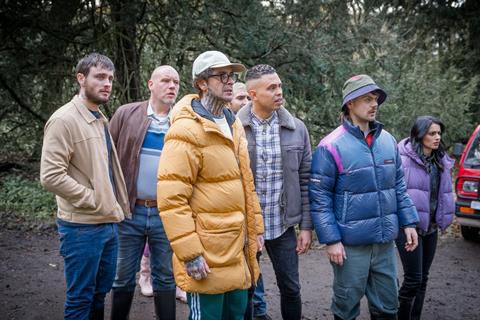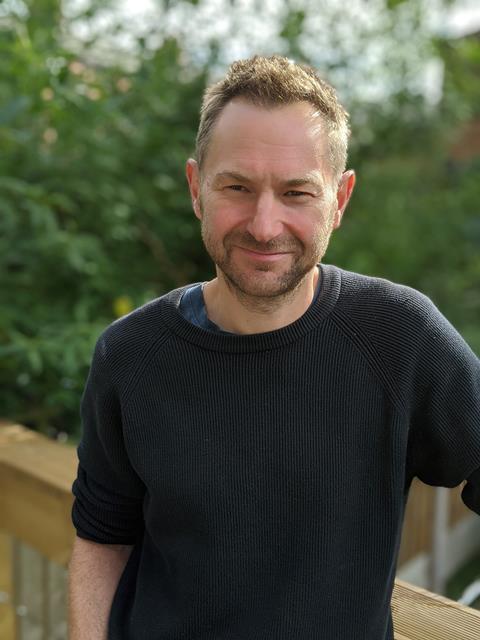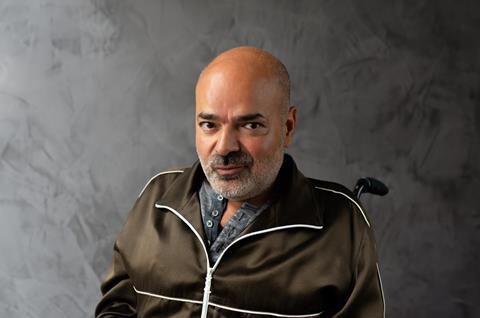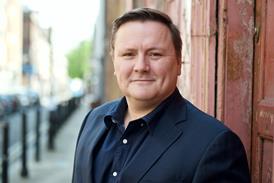Phil Clarke, Ash Atalla and Danny Brocklehurst propose changes to improve dire financial outlook for comedy producers

Major comedy producers have suggested a move away from “glossy” and “American” style of production in a bid to make the genre financially viable and sustainable.
The suggestion was initially proposed by the co-managing director of Various Artists Ltd (VAL), Phil Clarke, whose plea reflected the BBC’s new plan to move away from international co-productions and towards more affordable, home grown comedies.

Clarke joined heavyweights Ash Atalla and Danny Brocklehurst who kicked off the Cost of Comedy debate at the BBC Comedy Festival in Belfast by spelling out the dire financial outlook for producers.
“It is very hard to make the numbers add up,” said Clarke, the executive producer of BBC comedies Such Brave Girls, Juice and Spent.
“The question for us is does comedy still work economically? Sometimes we raise the question internally ‘is it worth us doing this show, because we’re going to earn so little from it?’.”
Brassic producer Brocklehurst agreed that making comedy has become “ridiculously expensive” with mounting pressure to build in international appeal.
“We’re being pushed and pulled, having to do things that might appeal to different countries… but I want to do stuff that feels very British and rooted,” he added.
Roughcut chief Atalla went further, saying “British comedy has stopped travelling” - making additional funding opportunities difficult.
“We used to be the envy of the world – but that’s not quite true anymore,” said the exec producer of BBC comedies We Might Regret This and Thing You Should Have Done.
Clarke agreed and proposed it is being driven by a “psychology in American television” of “pulling up the drawbridge”.
“It is almost Trumpian, like somehow we are ripping them off by selling them a show,” he suggested.
But the three were not in despair, unanimously agreeing that British comedy is soaring editorially.
Clarke said: “We have to find some editorial solutions if we still want a British comedy industry. But that in turn means broadcasters have to make room for shows that perhaps aren’t as glossy or ambitious as some of the American shows are.”
The difficulty, he warned, is that British audiences are increasingly used to the glossiness of American shows, which they are consuming far more.
“We are being compared in a way in which we weren’t before,” he said.
Brocklehurst added: “There is an argument that across the board – in drama and in comedy – we should all be trying to make things in a less expensive manner.”
Atalla said indies need to diversify away from focusing on pure comedy, much as his indie Roughcut expanded into drama in 2019.
“The days of building a company off the back of half-hour sitcoms have gone. Dramas bring their own complications and it’s not all gravy.
“But creatively it’s interesting…and drama is easy compared to comedy. Jokes are hard,” he said.
Atalla said the death of DVDs – a major funding top-up for indies during their height – is a key driver of the need to turn to other creative outlets.

“Everywhere you look in terms of additional funding, those doors have become tighter. The DVD thing must not be underestimated because comedy used to sell really well on DVD and that was money coming into indies that would really help keep the lights on.”
Funding difficulties were a major theme of the BBC Comedy Festival, which kicked off yesterday with Jon Petrie saying that skyrocketing production costs, increasingly rare international investment opportunities and the ongoing fight for a comedy tax credit are driving his push to “refocus commissioning around what’s real and possible now”.
The BBC also released a report today calling for “significant and sustainable” public investment to protect the genre, which it argues brings “substantial” cultural and economic returns to the UK.





























No comments yet